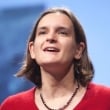The Challenges of Global Poverty
Consider issues posed by massive and persistent global poverty, and explore how economists can contribute to addressing this challenge.
Consider issues posed by massive and persistent global poverty, and explore how economists can contribute to addressing this challenge.
Consider issues posed by massive and persistent global poverty, and explore how economists can contribute to addressing this challenge.
This is a course for those who are interested in the challenges posed by massive and persistent world poverty, and are hopeful that economists might have something useful to say about this challenge. You will investigate critical questions around the current state of extreme poverty, the daily realities of living in such poverty, hunger, education for the poor, disease burden, the value of microfinance, the importance of property rights, the roles of markets and NGOs in economic development, the impact of foreign aid, and more.
The course will investigate the following topics:
Access the full syllabus here.
Previous exposure to economics and some familiarity with statistics will be helpful but not critical to understanding the material and learning from the course. Various resources will be available throughout the course for students to learn or refresh on the most important topics.
Course Readiness Check:
This is an introductory course that does not require a readiness check.


